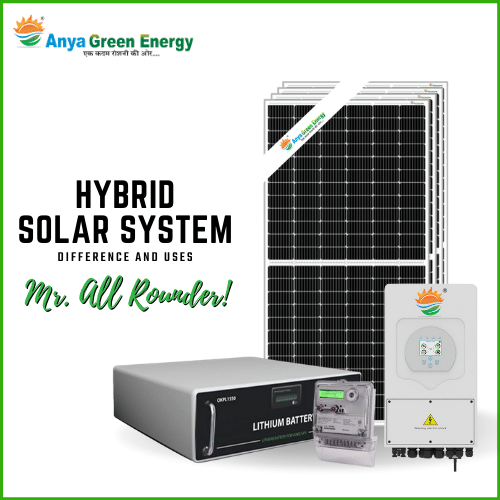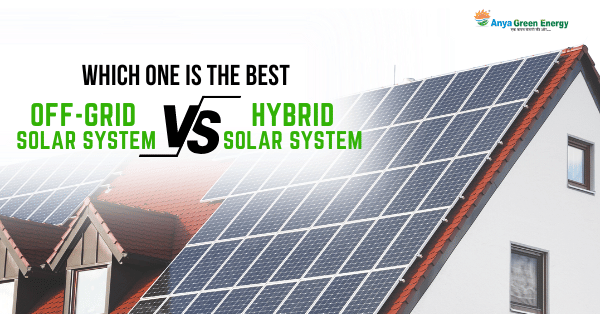HYBRID SOLAR SYSTEM FOR RICE MILL
In the quest for sustainable energy solutions, hybrid solar system for rice mills have emerged as a beacon of hope for industries seeking cleaner and cost-effective alternatives. Among these, rice mills stand to benefit significantly from the integration of hybrid solar systems. This innovative approach combines the efficiency of solar energy with the reliability of traditional power sources, providing an eco-friendly and economically viable solution for rice mill operations.
HYBRID SOLAR SYSTEM FOR RICE MILLS :

Why choose hybrid solar system for rice mills ?
The choice of a hybrid solar system for rice mills is rooted in its ability to optimize energy consumption while reducing dependency on conventional power grids. Rice mills, with their continuous need for electricity, often face challenges associated with rising energy costs and environmental impact. Hybrid solar systems offer a sustainable alternative that not only curtails operational expenses but also contributes to a greener, more sustainable future.
Importance of hybrid solar system for rice mills
Sustainable Energy Source: Hybrid solar systems utilize clean and renewable solar energy, drastically reducing reliance on non-renewable resources like coal or natural gas. By harnessing the power of the sun, rice mills can significantly lower their carbon footprint and contribute to a cleaner environment.
Energy Cost Savings: The installation of a hybrid solar system allows rice mills to generate their own power, thereby reducing their dependence on the grid. This leads to substantial cost savings in the long run, as solar energy is not only abundant but also free.
Grid Independence: Rice mills operating in regions with unreliable or unstable power grids face the constant threat of disruptions. Hybrid solar systems provide a reliable source of energy, ensuring uninterrupted operations even in areas prone to grid failures.
Energy Storage and Backup: A key feature of hybrid systems is the ability to store excess energy. This means that during periods of low energy production (e.g., at night or on cloudy days), rice mills can draw from stored energy, ensuring continuous operation.
Benefits of hybrid solar system for rice mills
Enhanced Efficiency: Hybrid solar systems are designed to maximize energy production, combining the consistent output of traditional power sources with the intermittent, yet abundant, energy from solar panels. This results in a more stable and efficient power supply.
Reduced Environmental Impact: By adopting a hybrid solar system, rice mills contribute to the reduction of greenhouse gas emissions. This environmentally conscious choice aligns with global efforts to combat climate change and promote sustainable practices.
Long-term Cost Savings: While the initial investment for a hybrid solar system may seem substantial, the long-term benefits outweigh the costs. With reduced energy bills and potential government incentives, rice mills can recoup their investment in a relatively short period.
Community Engagement and Image Enhancement: Embracing sustainable energy solutions like hybrid solar systems can also lead to positive community relations. Demonstrating a commitment to environmental responsibility enhances a rice mill’s reputation and can attract environmentally conscious customers.
The hybrid solar system for rice mills represents a significant step towards sustainable and economically viable energy solutions. By integrating solar power with traditional energy sources, rice mills can not only reduce their environmental impact but also realize substantial cost savings in the long run. The importance of this innovative approach cannot be overstated, as it paves the way for a greener, more sustainable future for the rice milling industry. Embracing the hybrid solar system is not only a prudent business decision but also a responsible step towards a cleaner, brighter tomorrow.


